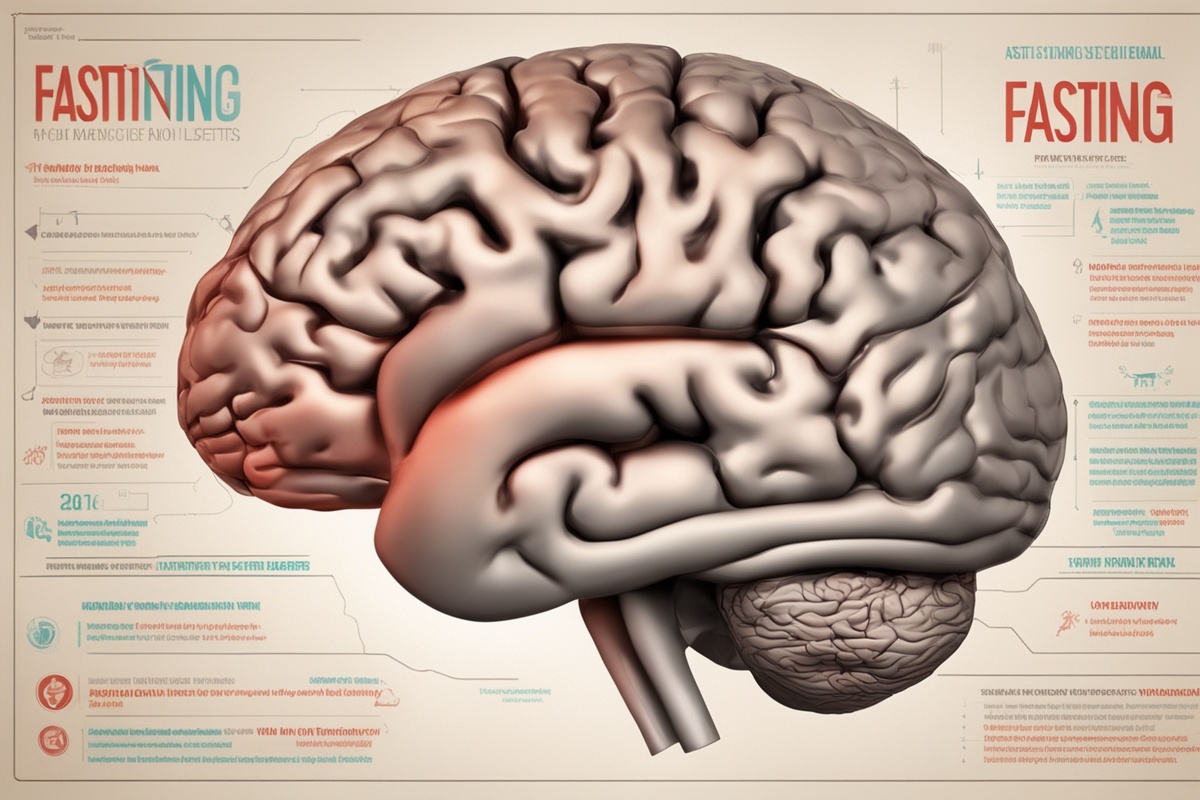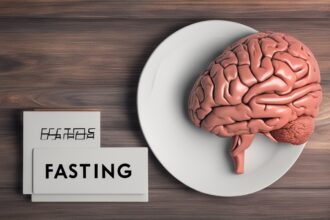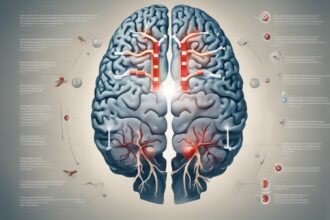Have you ever wondered if skipping a meal could do more than just help with weight loss? What if it could sharpen your mind, improve your focus, and even protect your brain from aging? Welcome to the fascinating world of health fasting and its profound impact on brain health. Fasting, a practice rooted in ancient traditions, has gained modern attention for its potential to enhance cognitive function and support long-term mental wellness. In this post, we’ll dive deep into how fasting influences brain health, unpack the science behind it, and share actionable tips to incorporate fasting into your lifestyle. Whether you’re a seasoned faster or just curious about intermittent fasting benefits, this guide is for you. Let’s explore how health fasting could be the key to unlocking your brain’s full potential.
What Is Health Fasting and How Does It Work?
When we talk about health fasting, we’re referring to a variety of practices where individuals voluntarily abstain from food for a specific period. This could mean intermittent fasting (like the popular 16:8 method, where you fast for 16 hours and eat during an 8-hour window), prolonged fasting (lasting 24–72 hours), or even time-restricted eating. The goal isn’t just calorie restriction; it’s about giving your body—and brain—a chance to reset. During fasting, your body shifts from using glucose as its primary energy source to burning stored fats, producing ketones as an alternative fuel. These ketones play a starring role in brain health, as we’ll see later. But beyond energy, fasting triggers a cascade of biological processes like autophagy (cellular cleanup) and reduced inflammation, both of which are critical for mental clarity and cognitive longevity.
The Science Behind Fasting and Brain Health
Let’s get into the nitty-gritty of how health fasting benefits the brain. Research shows that fasting can enhance brain function through several mechanisms. First, it boosts the production of brain-derived neurotrophic factor (BDNF), a protein that supports the growth and survival of neurons. Higher BDNF levels are linked to improved memory and learning (Mattson et al., 2018). Second, fasting induces ketosis, where the brain uses ketones instead of glucose for energy. Ketones are not just an efficient fuel; they also have neuroprotective properties, reducing oxidative stress and inflammation in the brain (Veech, 2014). Additionally, fasting promotes autophagy, a process where cells clear out damaged components, which may help prevent neurodegenerative diseases like Alzheimer’s (Rubinsztein et al., 2015). These scientifically backed benefits highlight why fasting for brain health is more than just a trend—it’s a powerful tool for mental wellness.
Key Benefits of Health Fasting for Cognitive Function
The advantages of health fasting extend far beyond physical health. Here are some of the most compelling ways it supports your brain:
- Enhanced Focus and Clarity: Many fasters report a “mental fog” lifting during fasting periods, likely due to stabilized blood sugar levels and increased ketone production (Veech, 2014).
- Improved Memory: Studies suggest that fasting boosts BDNF, which plays a key role in memory formation and retention (Mattson et al., 2018).
- Reduced Risk of Neurodegeneration: Fasting’s ability to lower inflammation and promote autophagy may protect against conditions like Parkinson’s and Alzheimer’s (Rubinsztein et al., 2015).
- Mood Regulation: Fasting can influence neurotransmitter activity, potentially reducing symptoms of anxiety and depression for some individuals (Fond et al., 2013).
These benefits make fasting for mental clarity a promising approach for anyone looking to optimize their cognitive performance or safeguard their brain as they age.
Practical Tips to Start Fasting for Brain Health
Ready to give health fasting a try? Starting can feel daunting, especially if you’re new to the concept. But with the right approach, fasting for cognitive health can be both sustainable and rewarding. The key is to ease into it and listen to your body. Here are some practical tips to help you begin your journey:
- Start Small: If you’re a beginner, try a 12:12 intermittent fasting schedule—fast for 12 hours overnight and eat during a 12-hour window. Gradually work up to 16:8 as you get comfortable.
- Stay Hydrated: Drink plenty of water during fasting periods to avoid dehydration, which can impair cognitive function. Herbal teas or black coffee (no sugar) are also fine.
- Choose Nutrient-Dense Meals: When you break your fast, focus on brain-boosting foods like fatty fish, nuts, and leafy greens to maximize the benefits of fasting for brain health.
- Avoid Overdoing It: Prolonged fasting (beyond 24 hours) should be done under medical supervision, especially if you have underlying health conditions.
- Track Your Progress: Keep a journal to note changes in focus, mood, or energy levels. This can help you fine-tune your fasting routine for optimal mental clarity.
Remember, consistency matters more than intensity. Start with what feels manageable, and don’t hesitate to consult a healthcare provider if you’re unsure how fasting fits into your health plan.
Potential Risks and How to Mitigate Them
While the benefits of health fasting for brain health are impressive, it’s not a one-size-fits-all solution. Fasting can come with risks if not done thoughtfully. For instance, some people may experience headaches, irritability, or fatigue during the initial adjustment period, often due to low blood sugar or dehydration (Johnstone, 2015). Additionally, fasting isn’t suitable for everyone—pregnant women, individuals with eating disorders, or those with certain medical conditions should avoid it unless cleared by a doctor. To minimize risks, start slowly, ensure proper hydration, and break your fast with balanced meals to stabilize blood sugar. If you feel unwell or overly fatigued, stop fasting and seek professional advice. The goal of fasting for cognitive health is to feel better, not worse, so always prioritize your well-being.
How Fasting Fits Into a Brain-Healthy Lifestyle
Fasting for mental clarity is most effective when paired with other brain-supporting habits. Think of health fasting as one piece of a larger puzzle. Regular exercise, for example, complements fasting by further boosting BDNF levels and reducing stress (Mattson et al., 2018). Quality sleep is another critical factor—fasting can improve sleep patterns for some, but poor rest can negate cognitive gains. Mindfulness practices like meditation also pair well with fasting, as they enhance focus and emotional resilience. And don’t forget nutrition; even on non-fasting days, a diet rich in omega-3s, antioxidants, and whole foods supports brain function. By combining fasting with these lifestyle choices, you create a synergistic effect that maximizes the intermittent fasting benefits for your mind and body.
In wrapping up, it’s clear that health fasting offers a unique and powerful way to support brain health. From enhancing focus and memory to potentially protecting against neurodegenerative diseases, the benefits of fasting for cognitive health are backed by promising research and countless personal stories. Whether you’re drawn to intermittent fasting or curious about longer fasts, the key is to approach it mindfully, with an emphasis on balance and self-awareness. By starting small, staying hydrated, and pairing fasting with other healthy habits, you can tap into the mental clarity and resilience that so many fasters rave about. So, why not give it a try? Your brain might just thank you for it. Share your thoughts or experiences with fasting in the comments—we’d love to hear how it’s worked for you!
References
- Fond, G., Macgregor, A., Leboyer, M., & Michalsen, A. (2013). Fasting in mood disorders: Neurobiology and effectiveness. A review of the literature. Psychiatry Research, 209(3), 253-258.
- Johnstone, A. (2015). Fasting for weight loss: An effective strategy or latest dieting trend? International Journal of Obesity, 39(5), 727-733.
- Mattson, M. P., Moehl, K., Ghena, N., Schmaedick, M., & Cheng, A. (2018). Intermittent metabolic switching, neuroplasticity and brain health. Nature Reviews Neuroscience, 19(2), 63-80.
- Rubinsztein, D. C., Mariño, G., & Kroemer, G. (2015). Autophagy and aging. Cell, 146(5), 682-695.
- Veech, R. L. (2014). Ketone ester effects on metabolism and transcription. Journal of Lipid Research, 55(10), 2004-2006.






